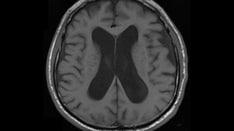Here in New York City, the US center of the COVID-19 pandemic, I closed my private practice entirely except for telemedicine. In the very early days of this epidemic, I restricted shot hours to avoid overlapping immunotherapy (IT) patients with office visits.
In retrospect, I should have stopped even earlier. Since closing the practice, only a couple of my patients have inquired about resuming shots; most of my patients are appropriately laying low and staying home. With most of us on lockdown anyway, there seems little point in worrying about IT now—so when the American Academy of Allergy, Asthma, and Immunology (AAAAI) published recommendations to continue allergen IT during this time, I felt the need to respond.
Among other things, the AAAAI recommendations include the following:
Increase the interval between both maintenance and buildup injections.
Continue venom IT.
For patients with allergic rhinitis, do not initiate immunotherapy during the pandemic except for rare extenuating circumstances.
Stop routine peak flows prior to IT.
Establish measures for limiting total patient and family traffic during IT.
I agree with stopping peak flows now—and probably for a long time to come—until the pandemic has fully resolved. However, we should also stop all inhalant IT and limit venom IT to the highest-risk patients. The risk of contracting and transmitting COVID-19 is too high to justify the benefit. Patients rely on our guidance now more than ever, and it sends the wrong message to stay open for shots.
Because of the still limited availability of testing and the 10%-20% rate of asymptomatic infection—as well as what I'm certain is the vast underreporting of cases—the true disease prevalence is widely underestimated, and exposure to and rapid spreading of the virus in the community may precede its recognition. A community that believes it has been spared may instead be in a time during which containing the virus is critical.
Another factor to consider is that IT in an area with a burdened emergency system is even more risky. It makes little sense to administer an elective injection of an allergen that could result in a systemic reaction now. It is likely that in some areas, there would be a delay in the arrival of an ambulance and perhaps even delay in the recognition and treatment of anaphylaxis severity at the emergency department. No patient who is otherwise healthy wants to be in a busy emergency department overwhelmed with very sick, coughing COVID-19 patients.
Finally, it is common enough for patients to miss shots and fall off of their schedule. We always find a way to deal with this if the patient is committed to it. With a cluster IT approach, it would also not take much time to catch up.
My patients will have to wait until the risk largely subsides, and that decision will be mine. At some point, I will resume IT on patients who have recovered from a documented COVID-19 case. Until then, to this doctor, primum non nocere simply translates to "stay away."
Gary J. Stadtmauer, MD, is an allergist-immunologist in New York City. His areas of clinical interest include asthma, latex allergy, chronic cough, and sinusitis. He has been a Medscape contributor since 2014.
Follow Medscape on Facebook, Twitter, Instagram, and YouTube
Medscape Allergy & Immunology © 2020 WebMD, LLC
Any views expressed above are the author's own and do not necessarily reflect the views of WebMD or Medscape.
Cite this: Gary Stadtmauer. Don't Endanger Your Patients: Stop Allergy Immunotherapy Now - Medscape - Apr 06, 2020.








Comments